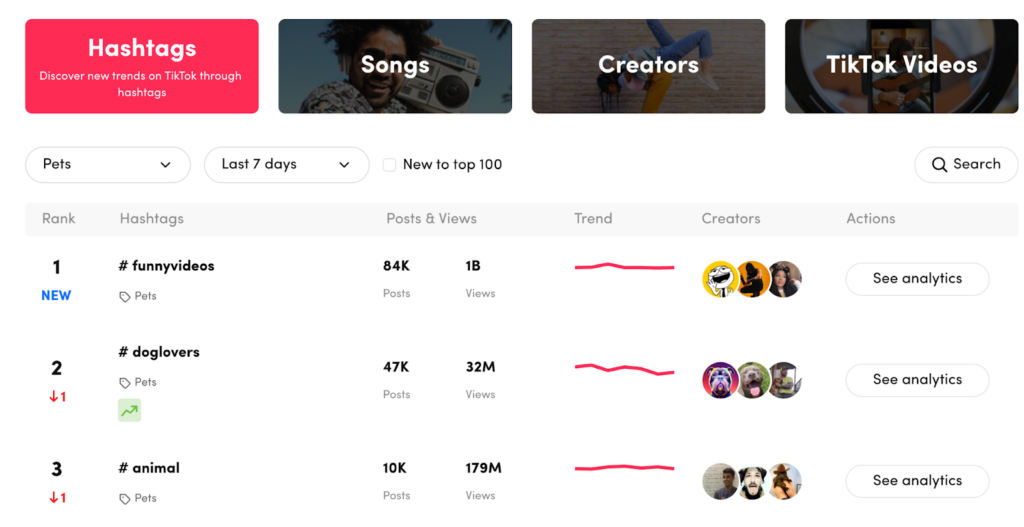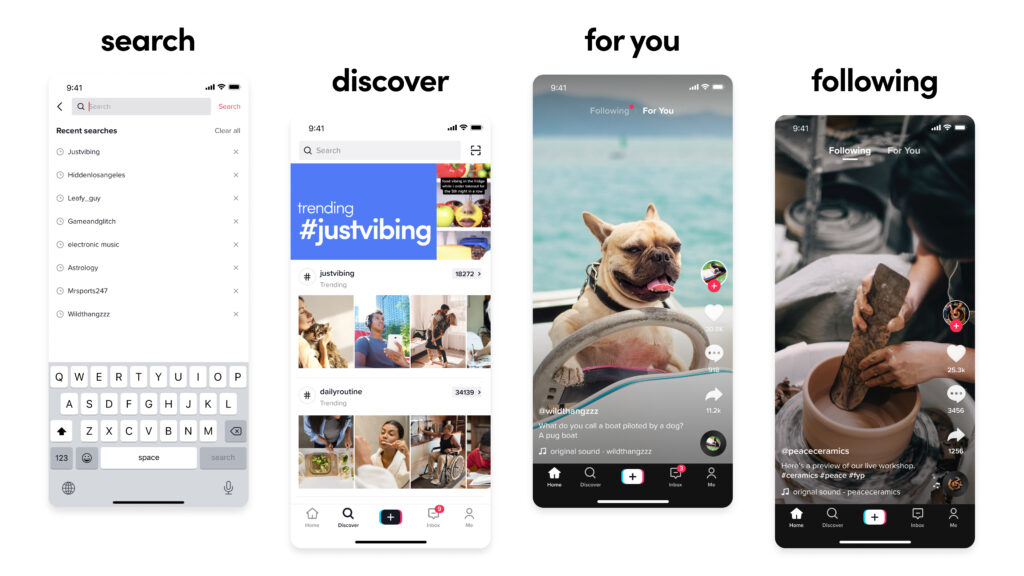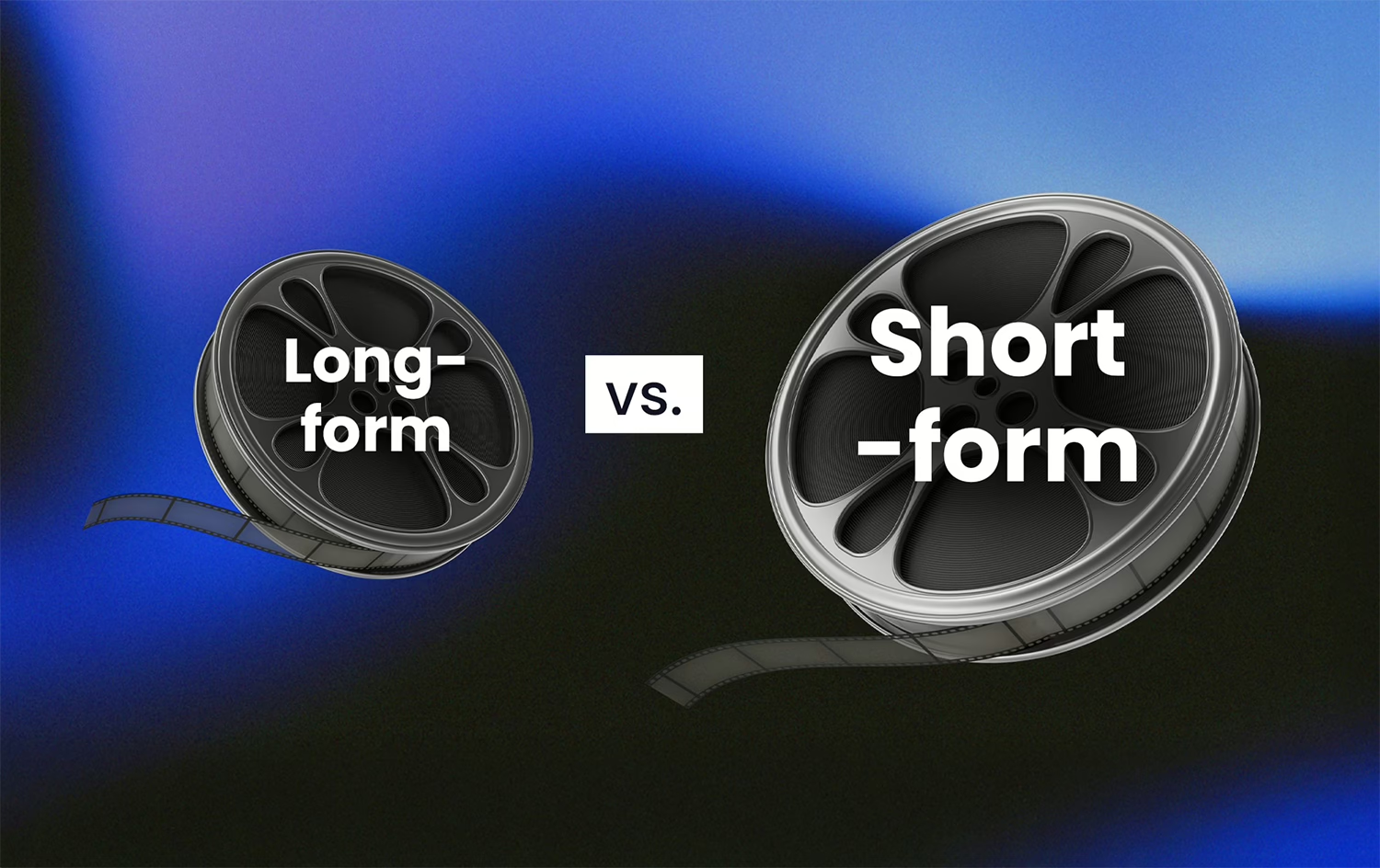According to Google’s internal 2022 data, over 40% of consumers use TikTok as a search engine when looking for places to eat, recipes and DIY videos. TikTok search results are constantly proving to be more unique, personalised and accessible. But how is this new shift impacting consumer behaviour and the wider marketing landscape?
To find out, let’s dive into the world of TikTok search…

How do search engines work?
A search engine, like Google or Bing, is a tool that helps you find what you’re looking for on the internet. You type in a word or phrase, and it quickly looks through all the web pages it knows about to give you a list of relevant results.
Search engines other than Google, like TikTok and Instagram, are increasingly being used to find information, with 64% of Gen Z using the TikTok search tool to find content. TikTok is a user-generated content engine, whose algorithm prioritises authenticity and interactivity.
What are the benefits of using TikTok as a search engine?
Personalised content
The algorithm knows exactly what users want to see when they make a TikTok search. While Google focuses on brands, TikTok is designed for the user and so search results are based on its users’ interaction with other content.
Visually rich and engaging
TikTok search results are not only tailored to the user’s interests and needs, but they are immersive and create a visual experience for users. Instead of boring readers with chunks of text, TikTok videos are visually exciting and are designed to captivate users immediately.
Convenient
Short-form videos get straight to the point. Users no longer need to scroll through someone’s whole life story to find out how to make the perfect scrambled eggs. They have their answer as soon as they click the video and are free from interruptive ads and pop-ups. This makes the user experience effortless and enjoyable.
Storytelling
TikTok search results are more reliable and authentic because they are anecdotal. A human is speaking directly to their user, backing up their claims with their own experiences.
Relevant
When you search for a specific term or TikTok hashtag, the engine displays the videos that other users have engaged with the most, keeping content relevant and popular.
Let’s delve into how TikTok Search is reshaping the way consumers look for information online.

How is TikTok search reshaping consumer behaviour?
The rise of short-form videos means attention spans are at an all time low, with consumers wanting information quickly.
TikTok search results also tap into niche communities. Algorithms personalise TikTok search results based on your interaction with similar content from that niche. Users even have the ability to perform a range of vague and niche searches, from ‘Restaurants near me’ to ‘Mexican restaurants Happy Hour Sheffield.
Individuals can now enhance the relevance of search results by using TikTok hashtags, which help the algorithm produce the most relevant content to display on a user’s For You Page (FYP).
However, this algorithm is making it more and more difficult for consumers to leave TikTok. Shoppers no longer need to click links to visit external Ecommerce sites as the products are readily available on TikTop Shop. TikTok Shop products directly correlate with the relevant content, for example, beauty influencers will link the makeup they are applying. A rise in influencer marketing has seen content creators having their own TikTok Shop where they offer exclusive products and discounts.
How is TikTok search impacting marketing?
TikTok search trends mean people expect personalised content, directly tailored to their needs and interests. TikTok search results include real, authentic content, which consumers deem more valuable than web content. Authenticity creates a sense of trust. In a world of technology and ads, people want to hear from a human.
- Businesses are starting to recognise the importance of search engines other than Google, with a whopping 53% of businesses intending to invest more in TikTok marketing.
- We have started to see how social media marketing is going beyond engagement metrics such as likes and comments, with the focus drastically shifting towards interactivity.
- SEO is also becoming increasingly more apparent on search engines other than Google like TikTok and Instagram. TikTok has even introduced a feature which identifies keywords in comments and links to search results. Businesses and influencers are optimising their social media content for SEO purposes.

How do I boost my video to the top of TikTok search results?
Research: Look at what type of content your audience is interacting with so you can create videos tailored to their interests.
Trends: Use trending sounds and templates to increase your reach. CapCut is a great platform for free templates!
Keywords: Use TikTok to find trending keywords and include these in your content
Engagement: TikTok’s algorithm favours interaction so make sure you’re encouraging your audience to engage with your video. This can include liking, commenting on or sharing your video.
Experimentation: There is no one size fits all with this platform. Test different video formats and styles and see which work best on your channel.
This shift from traditional search engines to social media platforms for information like TikTok demonstrates a huge change in how we consume information in a digital world.



